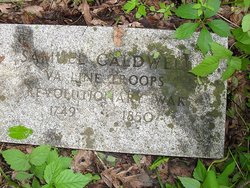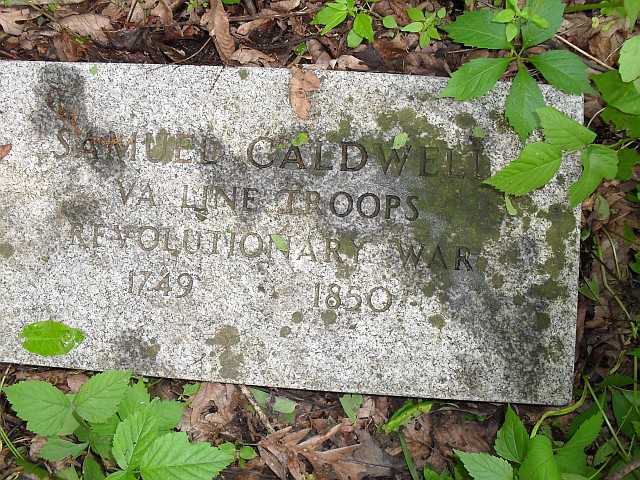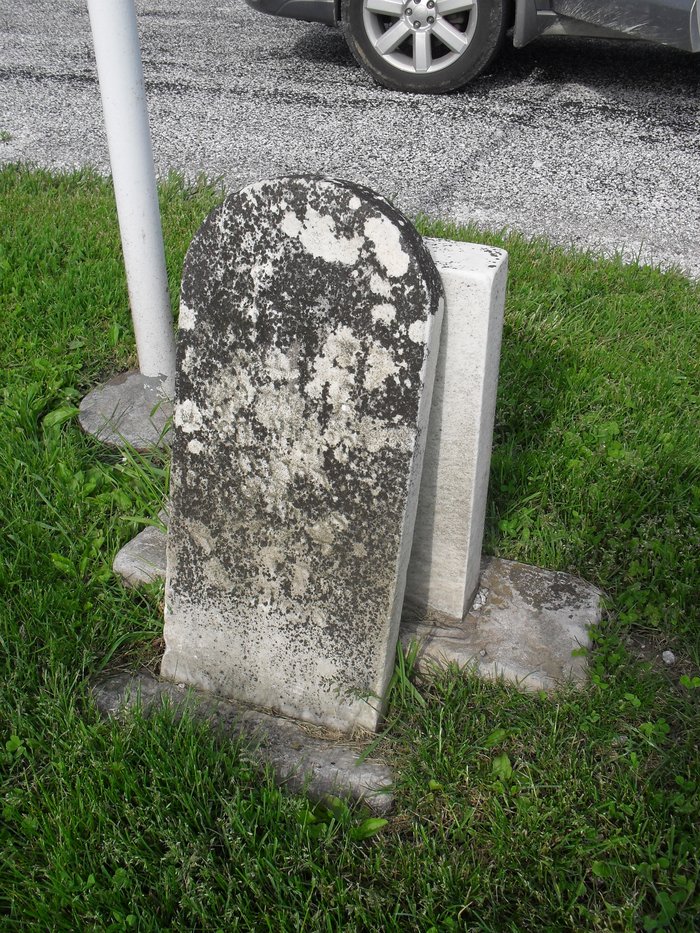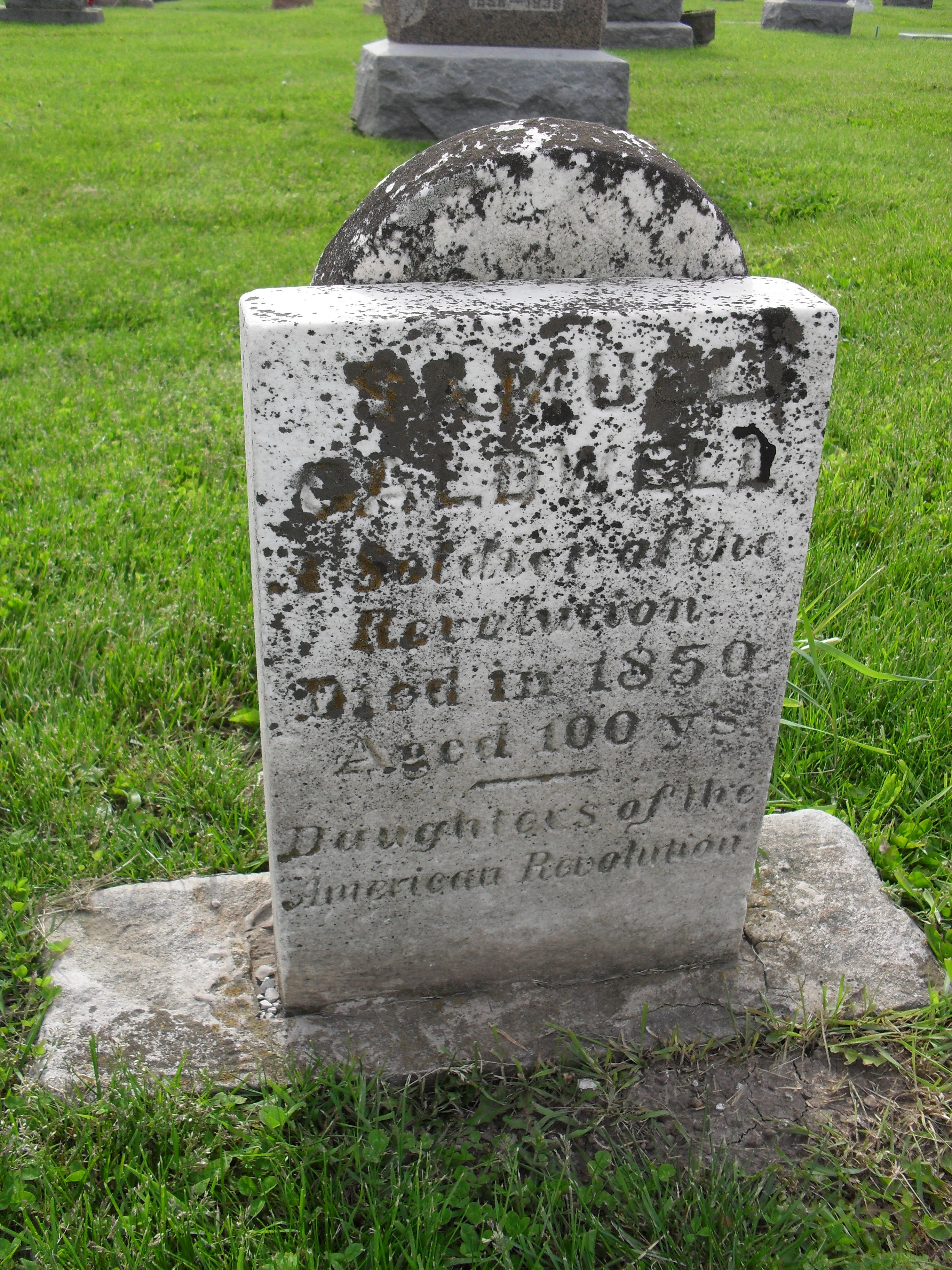Census records say Samuel was 88 in 1850, so date of birth & death are questionable. Records at Historical Society in Carthage say b. Mar 1765 d 1865, which is RIGHT I believe....
Samuel lived with the Abel Hardin Family as he is listed in that household in the 1850 US census. Abel Hardin and other members of his family MAY have migrated to IL from VA with Caldwell.
He is the FATHER of Isabela Cox (she married Armsted Cox in 1829), wife of Able Hardin(g)they were married in 1836, Abel's 2nd wife.
The following also shows that Samuel Caldwell is the father of Isabela Caldwell Cox Harding
Southern Campaign American Revolution Pension Statements & Rosters
Pension Application of Samuel Caldwell S32168 Transcribed and annotated by C. Leon Harris
State of Illinois – Morgan County, Sct –
In the Circuit Court of said County –
On this 20th day of June 1833 personally appeared in open Court, before the Hon. Saml. D. Lockwood, Judge thereof, now sitting in Jacksonville, Samuel Caldwell, a resident of said County and State, aged sixty eight years, who being duly sworn, on his oath makes the following declaration, in order to obtain the benefit of the act of Congress, passed June 7th 1832.
The said Caldwell says that he was born in March in the year 1765 in Baltimore County and State of Maryland and that in April 1781, being then a resident of Ohio County, Virginia, he entered the service of the United States, as a volunteer – on the north side of the Ohio river, opposite to the place where he was then living [see endnote], block houses were erected along the river, at a distance of about twenty miles apart, and about twenty men were stationed in each of those block houses, to defend them from the attacks of the Indians and British. He volunteered at the age of 15 or 16 and went over to one of those block houses. At first his father was displeased with him for entering the service, but at length he was advised by his father to suffer every privation rather than desert the cause he had volunteered to support. His Captain was John McCulloch, Moses Chaplain was Colonel, and Benjamin Biggs was General. While he was in service his lieutenant Joseph Biggs [pension application R831] was wounded and his place
filled by Benjamin Lockwood. While guarding the block house he with five others went out scouting and they were attacked by the Indians, and one of the party was killed and four others, including himself were wounded. He bears the scars of the wounds to this day and they are evidence of the severe injuries he received. During his service, the block house at which he was stationed was attacked by the enemy, an adjoining house was set on fire, one man killed and Lieutenant Biggs wounded. He was enrolled to serve six months but was discharged, at the end of four months and ten days he had a discharge from the Capt. but has long since lost it not deeming it of any importance That he has no witness now in his knowledge by whom he can prove his service –
He further states that after his discharge from the first term of service, to which he has just alluded, he volunteered, at different times, to go out in scouting parties to protect the block houses and defend the frontiers. He went out in such volunteer parties about 8 or 10 times within the five years succeeding his first term of service, and some he was employed, in this way, for three or four weeks at a time. He served in this manner not less than two months and probably four months it being impossible for him to know the precise length of time, the service being so irregular. The nature of the savage enemy and the situation of the Country at that period rendered such protection, as these parties gave the frontier settlements, absolutely necessary. This kind of service was then in that region of Country highly essential for the safety of the people and at the same time the most perilous to the volunteers. He was also in the fort at Wheeling, on the river Ohio, when the Indians and British made an attack upon that place [Fort Henry, Sep 1782]. The enemy were about 400 strong and it was with the hardest fighting, in which even the women and children engaged, that we succeeded in compelling them to retire and abandon their plan of storming the place. He states that he served more than six months and probably eight months, in all. He has no documentary evidence of his service, and hereby relinquishes every claim whatever to a pension or annuity, except the one now applied for, and declares that his name is not on the roll of the agency of any state. That Kneedham Roach and others know him and can testify as to his character.
Sworn to and subscribed this 20th day of June 1833 [signed] Samuel Caldwe[edge of page]
NOTES:
According to the pension application (R831) of Joseph Biggs, the blockhouse was nearly across
the Ohio River from Wheeling in present WV.
On 25 July 1842 Caldwell applied to have his pension transferred from Illinois to Iowa Territory,
having moved to Jefferson County for the following reason: “He was anxious to be with his children two of whom were settled in Iowa and one of them being just married it offered him a better home and a more comfortable one than he could obtain in Illinois.” On 15 Jan 1850 Caldwell applied to have his pension transferred from Iowa back to Illinois, having moved to Hancock County to be under the “care and aid” of his daughter and son-in-law.
Contributor: X24mom (49959335)
Census records say Samuel was 88 in 1850, so date of birth & death are questionable. Records at Historical Society in Carthage say b. Mar 1765 d 1865, which is RIGHT I believe....
Samuel lived with the Abel Hardin Family as he is listed in that household in the 1850 US census. Abel Hardin and other members of his family MAY have migrated to IL from VA with Caldwell.
He is the FATHER of Isabela Cox (she married Armsted Cox in 1829), wife of Able Hardin(g)they were married in 1836, Abel's 2nd wife.
The following also shows that Samuel Caldwell is the father of Isabela Caldwell Cox Harding
Southern Campaign American Revolution Pension Statements & Rosters
Pension Application of Samuel Caldwell S32168 Transcribed and annotated by C. Leon Harris
State of Illinois – Morgan County, Sct –
In the Circuit Court of said County –
On this 20th day of June 1833 personally appeared in open Court, before the Hon. Saml. D. Lockwood, Judge thereof, now sitting in Jacksonville, Samuel Caldwell, a resident of said County and State, aged sixty eight years, who being duly sworn, on his oath makes the following declaration, in order to obtain the benefit of the act of Congress, passed June 7th 1832.
The said Caldwell says that he was born in March in the year 1765 in Baltimore County and State of Maryland and that in April 1781, being then a resident of Ohio County, Virginia, he entered the service of the United States, as a volunteer – on the north side of the Ohio river, opposite to the place where he was then living [see endnote], block houses were erected along the river, at a distance of about twenty miles apart, and about twenty men were stationed in each of those block houses, to defend them from the attacks of the Indians and British. He volunteered at the age of 15 or 16 and went over to one of those block houses. At first his father was displeased with him for entering the service, but at length he was advised by his father to suffer every privation rather than desert the cause he had volunteered to support. His Captain was John McCulloch, Moses Chaplain was Colonel, and Benjamin Biggs was General. While he was in service his lieutenant Joseph Biggs [pension application R831] was wounded and his place
filled by Benjamin Lockwood. While guarding the block house he with five others went out scouting and they were attacked by the Indians, and one of the party was killed and four others, including himself were wounded. He bears the scars of the wounds to this day and they are evidence of the severe injuries he received. During his service, the block house at which he was stationed was attacked by the enemy, an adjoining house was set on fire, one man killed and Lieutenant Biggs wounded. He was enrolled to serve six months but was discharged, at the end of four months and ten days he had a discharge from the Capt. but has long since lost it not deeming it of any importance That he has no witness now in his knowledge by whom he can prove his service –
He further states that after his discharge from the first term of service, to which he has just alluded, he volunteered, at different times, to go out in scouting parties to protect the block houses and defend the frontiers. He went out in such volunteer parties about 8 or 10 times within the five years succeeding his first term of service, and some he was employed, in this way, for three or four weeks at a time. He served in this manner not less than two months and probably four months it being impossible for him to know the precise length of time, the service being so irregular. The nature of the savage enemy and the situation of the Country at that period rendered such protection, as these parties gave the frontier settlements, absolutely necessary. This kind of service was then in that region of Country highly essential for the safety of the people and at the same time the most perilous to the volunteers. He was also in the fort at Wheeling, on the river Ohio, when the Indians and British made an attack upon that place [Fort Henry, Sep 1782]. The enemy were about 400 strong and it was with the hardest fighting, in which even the women and children engaged, that we succeeded in compelling them to retire and abandon their plan of storming the place. He states that he served more than six months and probably eight months, in all. He has no documentary evidence of his service, and hereby relinquishes every claim whatever to a pension or annuity, except the one now applied for, and declares that his name is not on the roll of the agency of any state. That Kneedham Roach and others know him and can testify as to his character.
Sworn to and subscribed this 20th day of June 1833 [signed] Samuel Caldwe[edge of page]
NOTES:
According to the pension application (R831) of Joseph Biggs, the blockhouse was nearly across
the Ohio River from Wheeling in present WV.
On 25 July 1842 Caldwell applied to have his pension transferred from Illinois to Iowa Territory,
having moved to Jefferson County for the following reason: “He was anxious to be with his children two of whom were settled in Iowa and one of them being just married it offered him a better home and a more comfortable one than he could obtain in Illinois.” On 15 Jan 1850 Caldwell applied to have his pension transferred from Iowa back to Illinois, having moved to Hancock County to be under the “care and aid” of his daughter and son-in-law.
Contributor: X24mom (49959335)
Gravesite Details
The stone is a replacement and NOT accurate. Sam died AFTER Sept 1850.
Family Members
Advertisement
Advertisement










